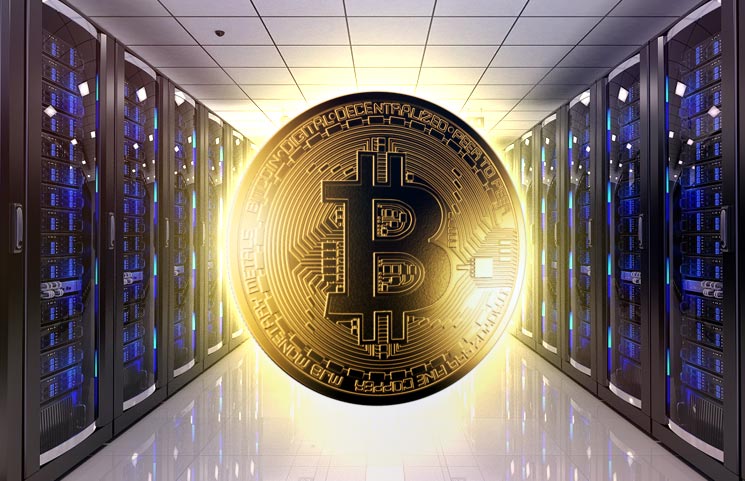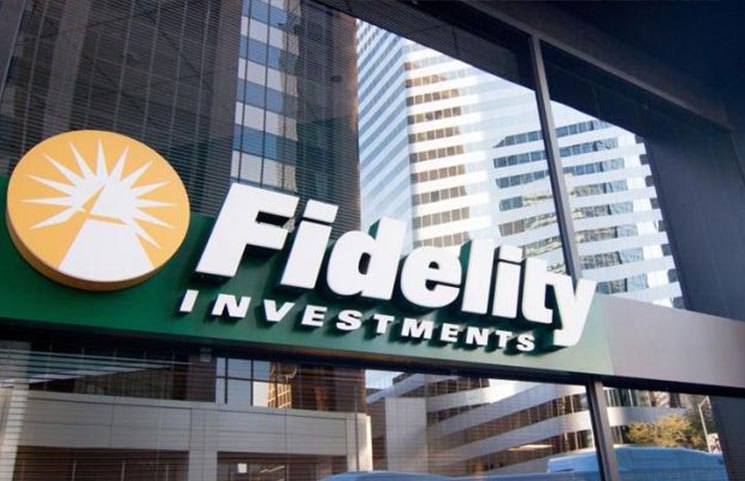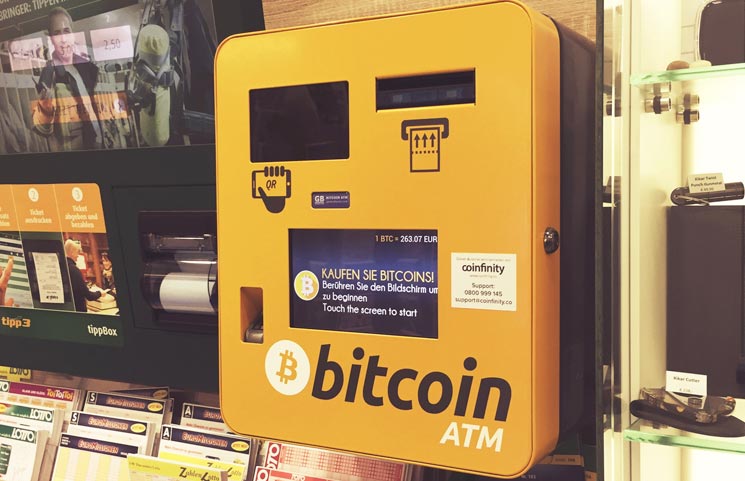Bitcoin Cryptocurrency Exchanges
Are Bitcoin Mining Pools or Cloud Mining Contracts Right For You

During your initial research into Bitcoin and cryptocurrencies, you have likely encountered two aspects of investing via mining. You’re wondering if upgrading your computer to join a mining pool would be more profitable than buying Bitcoin outright. Likewise, you may want to know if buying mining power is an equally worthy investment.
Explore two aspects of cryptocurrency mining and see which one is best for you. Additionally, discover if buying cryptocurrency on exchange would be preferable over mining.
Bitcoin Mining Pools: Could They Get You Rich?
So many new Bitcoiners ask, “Should I join a mining pool? Will a high-powered graphics card earn me more Bitcoin in the long-run?” Bitcoin mining is a highly involved process that requires great technical prowess.
The average person is not ready to start Bitcoin mining, and getting set up to do so may delay their investment significantly. If you spend a few weeks setting up your mining rig, the price of Bitcoin might have gone up and limit your return on investment compared to buying Bitcoin upfront and instantly.
A mining pool appeals to many because you’re pretty much guaranteed to get some Bitcoin in very small amounts. That’s because a mining pool contains dozens, hundreds, and thousands of computers connected to the same node. When the pool finds a new block reward, it splits it among all its members based on contribution.
The more processing and mining power you have, the more your cut of the reward will be. If your pool finds several blocks in a row, the profits can be quite impressive. This is the exact reason why mining pools are so popular; few people have encountered great success by finding blocks with so few people and earning significantly more Bitcoin had they just bought it with cash.
However, mining takes power. It requires a high powered graphics card (or several) and it soaks up energy like a sponge. If you begin mining from home, you’re sure to see your utility bill double or even triple depending on the strength of your rig. Therefore, when considering mining from home, take into consideration the increase in your utility bill.
Mining will almost always reward you the same as or less than if you purchased Bitcoin for the same cost of your mining hardware. This is pretty much added hassle, time, and stress to reward you a similar amount of Bitcoin as if you mined up front.

Should You Mine Bitcoin By Yourself?
You might look at the block rewards, and your eyes might become star-struck when you see the current reward of 12.5 or 6.25 Bitcoin per discovery. Many new Bitcoin entrepreneurs liken mining to gambling by saying, “If I mine by myself, I might be that lucky someone to find the next block reward and claim that dozen Bitcoin for myself!” Has it happened before?
Absolutely; some people have gotten incredibly lucky and snagged a block all for themselves. They became wealthy overnight. However, the chance of this happening based on how many computers are currently mining, you may have better luck winning the top prize in a scratcher.
Even if your Bitcoin mining set-up resembles the Death Star, you’re not very likely to claim a block reward for yourself. That’s why mining pools are so desirable. Your extra processing power is guaranteed to earn you more fractions of a Bitcoin than relying on your lonesom to find the next block.
However, that doesn’t mean that mining pools are the best way to earn Bitcoin over time. Use online mining calculators to see for yourself an estimated return on investment. After factoring in the hardware costs, the mining pool fees, the utility bills, your excitement may turn into disappointment.
Should You Rent Mining Power?
Rentable mining power is a very recent option when it comes to mining. They are also called “mining contracts” because you lock yourself into a contract that pretty much guarantees you a pre-set amount of processing power. Consider mining contracts like renting a portion of space in a warehouse. Companies such as Genesis Mining and HashFlare are comprised of hundreds/thousands of servers isolated somewhere in the world where energy is abundant.
Customers who rent mining space are simply portioned to receive a certain percentage of rewards that this server farm acquires. You’re not renting physical processing power; you’re renting a percentage of the rewards the servers receive. Think of it like a gambling contract. Let’s say you put down a sum of money to a casino, “I am renting a portion of the casino’s earnings for the next hour.”
Any money that the casino receives goes to you. You might get lucky and get a lot of the house was lucky. Or you may be unlucky and only get enough to barely pay off your initial investment. You’re not renting the physical blackjack or poker tables; you’re making an agreement with the casino that you’d like to receive a percentage of their earnings in exchange for a flat fee.
The Hidden Dangers of Mining Contracts: Mining Difficulty
Mining contracts appeal to you by showing you how fast your initial investment will return. For example, if you sign up for a two-year contract, a mining pool might say, “Pay off your investment in 6-8 months!”
This is dangerous because the fast ROI depends on the price of Bitcoin (AKA the mining difficulty) staying the same. Because Bitcoin and cryptocurrency as a whole goes up over time (despite many smaller ups and downs) the mining difficulty increases. This returns you fewer and fewer coins over time. Mining contracts look favorable on paper, but you’ll find your ROI shrinking as that 6-8 month mark approaches.
The amount of power you purchased, for example, used to get you 0.0001 Bitcoin per day, but now you find it returning 0.000075 per day, and less over time. Yes, mining contracts are very likely to return your investment – and even more – but these returns will likely not be as significant as if you had just purchased Bitcoin (or any other coin) up-front with the mining contract fees.
How to Approach Pools, Contracts, and Direct Purchases
It may be quite the experience to sign up for a mining contract! One thing is for sure; they are very fun to take part in. They all offer very flashy graphs and ‘profit over time’ charts that make your rented mining power very interactive. However, they are not recommended as a sole form of investment.
If you wanted to play it safe, you could commit 10-20% of your investment in the form of signing a mining contract, and commit the rest into purchased cryptocurrency off an exchange. To see how each one favors you, keep track of your spending and, after the contract ends, see which one performed better. Remember, there is absolutely no guarantee which will perform better! You might find that this advice returns you less than if you had purchased a majority in mining power. Either form of investment is entirely dependent on the market.
What about mining pools? As mentioned earlier; mining pools are the tech-buff’s hobby project. Unless you’re renting out mining power or unless you have a significant portion of un-used powerful graphics cards laying around, it’s best to approach self-mining slowly.
Consider buying a sum of Bitcoin/cryptocurrency up-front and taking your time to start mining. As mining proves its return on investment, you can devote more money and resources to increasing your mining power.
Whatever you decide to do, approach your Bitcoin investments with critical thinking and research.
No matter what you decide upon, you’re sure to earn some coins – whether up front as you press that “purchase” button or over time as your mining pool/contract starts delivering your returns.
Altcoin News
47% of Institutional Investors Interested in Digital Assets: Reveals Fidelity Research

It’s time to get hard-core bullish!
The latest report by the investment giant Fidelity that has entered the crypto space with its Fidelity Digital Assets has shared interesting and bullish research that states institutions are very much active in the crypto space and in the next five years, it will further increase.
Conducted by Greenwich Associates, the research took place between the period of November 2018 and February 8, 2019, that covered 441 institutional investors in the US. The time period involved is of importance here as well as this has been at the time when Bitcoin was already down about 70 percent and further dropped to its yearly low.
Institutions ‘overwhelmingly Favorable’ about Appealing Characteristics
The research finds that institutional investors are “overwhelmingly favorable” about the appealing characteristics such as technology and low correlations to other assets of the digital assets.
- About half of respondents (47%) appreciate digital assets as an innovative technology play
- 46% find digital assets’ low correlation to other assets among the most appealing characteristic
- Financial advisors (74%) and family offices (80%) view the characteristics of digital assets most favorably
Source: Fidelity Digital Assets
Four in Ten Open to Future Investment in Cryptos
The survey reveals that about 22 percent of institutional investors already have some sort of exposure to digital assets. Most of the investments have been made within the past three years only.
However, the future is bright as four in ten respondents say they are open to future investments in digital assets over the course of the next five years.
But what's most interesting is nearly half that is 47 percent of the institutional investors view digital assets as something that has a place in their investment portfolios.
In response to his huge number of institutional investors interested in cryptos, Bitcoin bull Tom Lee says, “@DigitalAssets (Fidelity) carries institutional credibility that will help many of these institutions to make that crossover.”
However, the preference to hold digital assets vary, with 76 percent of institutions survey stated security and safety as the most important considerations when considering custodian services.
The momentum is building!
The interest is ever growing from different fields as the company has been seeing interest from endowments, pension, foundations, and family offices over the past several months.
The research also reveals that institutions are more aware of regulatory and investment developments more than they were six or twelve months ago.
Bitcoin Cryptocurrency Exchanges
Bitcoin ATM: How To Use Crypto Automated Teller Machines?

Did you know that Bitcoin ATMs exist? And if you do, would you know how to use one?
If you’re unsure of either of these questions then you have come to the right place. In this guide, we’ll go over how to use a Bitcoin ATM and how to buy and sell Bitcoins using them. We’ll also go over some key factors on how to locate the nearest Bitcoin ATM near you.
But before all of this, it’s important to take you through a quick introduction of Bitcoin ATMs in general.
What Are Bitcoin ATMs?
Bitcoin ATMs are similar to traditional ATMs that print out fiat currencies. However, unlike traditional ATMs, Bitcoin ATMs let you withdraw Bitcoins instead of fiat dollars, yen, pounds etc. Some take step further by allowing you to convert Bitcoins into fiat currencies, and some work the other way too.
A key feature of Bitcoin ATMs is that they let you buy and sell Bitcoins without requiring any personal information. There is no KYC or AML compliance needed to operate a Bitcoin ATM, which can make them a great way to keep your identity private.
However, there are costs involved when using a Bitcoin ATM too. Bitcoin ATMs generally charge a fee of 7-10% for each transaction, which is money well spent by some people’s standards.
In order to use a Bitcoin ATM, you’ll need to find one first, which can be a challenging obstacle because of the spare numbers of Bitcoin ATMs.
How To Find A Bitcoin ATM Nearest To You
Using the Coin ATM Radar service, you can easily find the nearest Bitcoin ATM closest to your current location. This also allows you to search for Bitcoin ATMs in other neighbourhoods and even other countries if you plan to travel overseas.
Through using the Coin ATM Radar service, it gives you the following benefits:
- Find the nearest ATM on a map
- Search for the closest ATMs in your vicinity
- See all the relevant details about the Bitcoin ATM, including fees, limits, and type of ATM (buys and sells or buy or sell only)
- Get directions from your current location to the desired ATM
How To Use Coin ATM Radar Service
To use the Coin ATM Rader service, go through the following steps:
- Navigate to the Coin ATM Radar Service website and look at the live map that displays a list of ATMs that are in your present location
- Add your location and city and then click search ATMS
- Choose your nearest ATM and click on it to see the details
- Click ‘Get directions’ to get a Google maps overview for the location and directions
Now that you are aware of how you can find a Bitcoin ATM, let’s go over how to actually use a Bitcoin ATM for both buys and sells.
How To Buy And Sell Bitcoins Using An ATM
Selling or buying Bitcoins through an ATM is not always easy as there are various kinds of Bitcoin ATMs in circulation.
Below is a list for the different types of Bitcoin ATMs that you’ll see around the world
- Genesis1 Bitcoin ATM
- Satoshi1 Bitcoin ATM
- Satoshi2 Bitcoin ATM
- Lamassu Bitcoin ATM
- Lamassu with Santo Tirso
- BATM2 Bitcoin ATM
- BATM3 Bitcoin ATM
- BitAccess Bitcoin ATM
- BitXatm Bitcoin machine
- Robocoin kiosk
- Skyhook bitcoin machine
Do not let the above list intimidate you. There are numerous YouTube videos that you can access for free to give you an overview of how to use each Bitcoin ATM.
How To Buy Bitcoins Using The Genesis1 Bitcoin ATM
- Click on the Buy Bitcoin Button
- Then chose your coin, which in this case will be Bitcoin
- Scan your QR code
- Scan the QR code of your wallet
- Insert your money
- Then press finish
- Remember to take and check your receipt
How To Sell Bitcoins Using The Genesis1 Bitcoin ATM
- Select the withdraw cash option
- Select Bitcoin
- Then enter the amount that you wish to withdraw
- Send the desired amount of Bitcoin to an address or scan the QR code from your mobile wallet
- Take out your cash
- Again, remember to take a receipt and double check that you sent the right amount of Bitcoin and to the right address
Buying Bitcoins Using Lamassu Bitcoin ATM
- Scan the desired Bitcoin address
- Insert your dollar bills
- Select the send Bitcoins option
How To Buy Bitcoins using BitAccess Bitcoin ATM
- Select start
- Then enter your phone number (mobile) to continue
- Confirm the verification code delivered to your phone number
- Now scan the QR code of the Bitcoin address that you wish to receive your Bitcoin to
- Enter fiat dollars
- Now your coins will be sent if it is a valid Bitcoin address
Bitcoin ATM Summary
Operating a Bitcoin ATM is a simple case, as long as you are close enough to use one.
But a word of caution: some ATMs need you to scan your identity documents such as a passport or drivers licence. The ATM may also ask for a phone number to comply with KYC laws. However, this will generally only happen in the case of a large amount of Bitcoins.
As stated previously, there is not a huge number of Bitcoin ATMs to choose from and some of them can only be used to either buy or sell Bitcoins, as ATMs that do both are very hard to find.
To get around such hurdles, there are a few different kinds of Bitcoin ATMs that you can use to sell your Bitcoins that sit in a remote wallet You can then withdraw those coins for cash once the transaction completes from the nearest Bitcoin in your location.
A minority of ATMs even support Bitcoin virtual debit cards, which means you can withdraw fiat cash in case you need while overseas. This could help eliminate some of the stresses and troubles of exchanging your money while abroad.
Over the next few years, it’s likely that the quality and number of Bitcoin ATMs will increase and that we will witness different kinds of ATMs in various parts of the world, just like we saw with traditional ATMs.
Best Rated & Top Ranked
Crypto Checklist For Which Cryptocurrency Exchange Is Right For You

If you've done your homework on investing in cryptocurrency, you probably know that you need to choose an exchange to facilitate your transactions. Many are available to choose from, each employing a different fee structure, cryptos available to trade, and deposit mechanism. The list below details five of the most popular exchanges along with some of the pros and cons of each, enabling you to make an informed decision on which one you should use.
CoinBase

CoinBase, often recommended as a beginner's first cryptocurrency exchange because of how easy it is to use, has an extremely beginner-friendly interface. You can link a bank account or credit card to fund your transactions easily, and withdrawals may be paid to your bank or Paypal account, making cashing out hassle-free. Money deposited in your account is also insured, a feature that no other exchange can currently claim.
All of these conveniences come with trade-offs, however. The site charges transaction fees of up to 3.99% per trade on accounts funded with a credit card, and even bank-funded accounts are subjected to a relatively high 1.49% fee. CoinBase only trades in Bitcoin, Ethereum, Bitcoin Cash, and Litecoin, leaving more daring investors with limited selections. Finally, spending caps limit how much investors may spend on the site per week.
Gemini

Investors interested in crypto is as a short-term investment opportunity, Gemini may be the exchange for you. The site charges minuscule transaction fees of a quarter of a percentage point per trade, with no added fees for deposits or withdrawals. This exchange also offers the convenience of linking a bank account to fund your crypto purchases with traditional currency. Users can start trading before their deposit clears, although they will not be permitted to cash out until it does.
The most significant downside is a stark lack of choice: only Bitcoin and Ethereum are available at the moment. There is also a $500 weekly spending limit that there is no way to work around, limiting the amount you can invest at a time.
Bittrex

Bittrex is a true cryptocurrency exchange with an interface that will feel immediately familiar to anyone who has traded stocks in matching pairs on a Forex exchange. It offers over 190 tokens to choose from, virtually ensuring that all altcoins are available. The site's fees are also very reasonable, matching Gemini's for most trades.
The most substantial negative for Bittrex is how intimidating a Forex system looks to somebody who has never used one. There is also no way to exchange fiat currency for crypto on the site, forcing users to have an account on another platform such as CoinBase or Gemini to purchase crypto for transfer to Bittrex.
BitStamp

BitStamp is sometimes referred to as Europe's CoinBase because it is the most popular, beginner-friendly exchange for the European market. Investments funded with a SEPA account have no deposit fee, a flat 0.90 EUR withdrawal fee, and affordable transaction fees. The platform offers affordable rates to users outside of Europe as well, but the greatest appeal here is for Europeans.
BitStamp has a fair selection, including Bitcoin, Ethereum, Ripple, and Litecoin. Users are advised to avoid their credit cards when funding their accounts. Transaction fees on credit card purchases range from 5% to 8% based on the amount of the deposit, and investors want no part of that.
Kraken
![]()
Kraken offers 16 tokens to choose from, including Z-Cash, Monero, Ripple, and Dash as well as industry stalwarts such as Bitcoin and Ethereum. It has a Forex-style interface comparable to Bittrex but allows users to link a bank account to fund their transactions as well. Fees vary based on the trading pair, but most are less than .36%. This platform supports advanced trading options such as leverage trades, stop limits, and conditional closes that make it ideal for the expert crypto trader.
Deposits need to clear before users can start trading (about one to five business days), with no option to lock in current pricing. Users must also provide their legal name, date of birth, country of residence, and phone number to make bank deposits or withdrawals.
Parting Words
The lack of customer support is a failing across all cryptocurrency exchanges right now, so bear that in mind if you have a problem. While all of the platforms above are trusted in the space, many others are plagued by hackers or set up as Ponzi schemes. BitConnect recently closed down amid allegations that it was more of a scam than a legitimate exchange, so make sure that you research any site thoroughly before funding any account.










